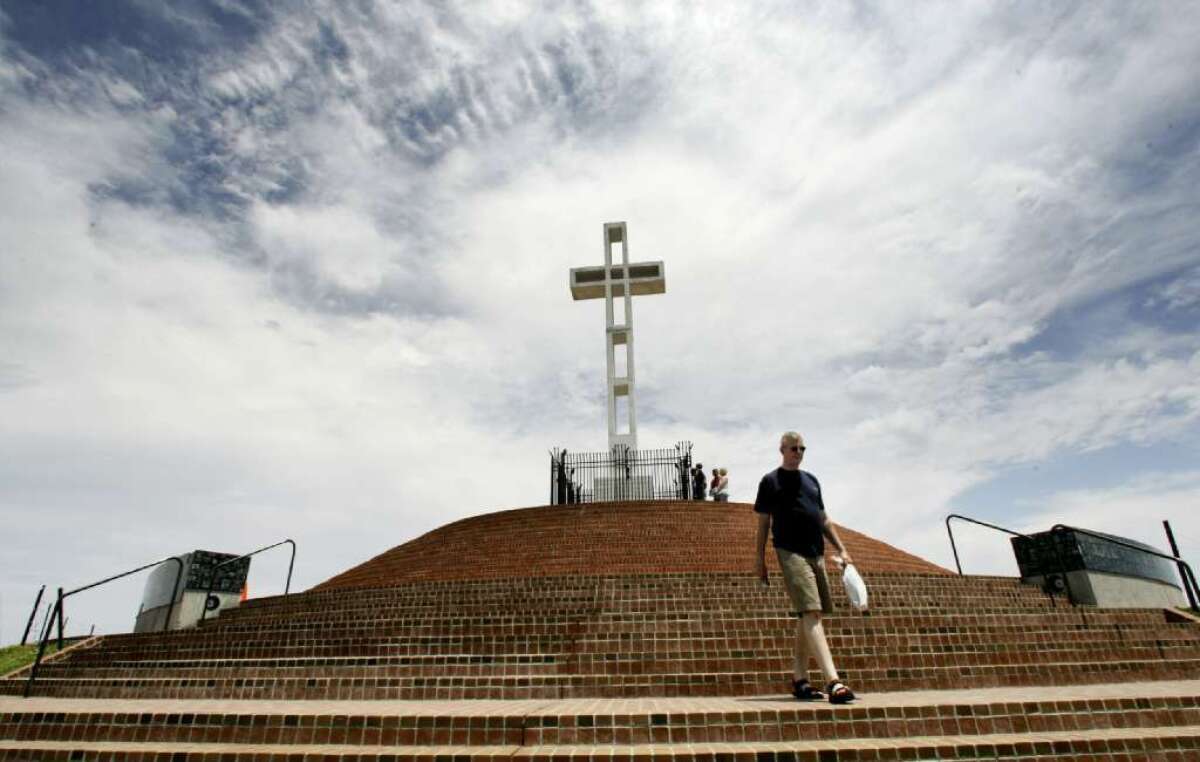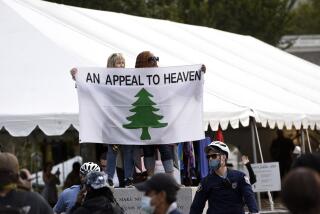Mt. Soledad cross: Take it down

- Share via
The Mt. Soledad cross has been handed yet another defeat in its long legal drama. A lower court ruled for the second time that the cross — a visually commanding religious symbol on government-owned land on a San Diego hilltop — violates constitutional guarantees of separation of church and state. Now the Supreme Court almost certainly will be asked to reconsider the issue. Though a previous opinion from the high court indicated a tolerance for such crosses, there is no getting around the fact that allowing such a clear symbol of Christianity to dominate a public landscape strongly implies a government preference for one religion over others. The cross should be taken down.
Attempts to remove the 59-year-old cross have been unfairly vilified as attempts to wipe all signs of religion from public spaces. Of course, crosses have a proper place on public land. One example is the large cross in a corner of Camp Pendleton that marks the site of the first baptism in California. In that case, history and religion are inextricably bound. The crosses that mark the graves of Christian war veterans are an appropriate way to honor both their service and their beliefs. But we doubt anyone would say that such a symbol belongs on the graves of Jewish or Muslim war dead. A cross is not a universal symbol for memorializing the dead. It is a Christian marker.
Yet in a 2010 case involving another cross on public land, Justice Anthony M. Kennedy oddly asserted in the majority opinion that the cross was not just a symbol of Christianity but a national emblem without particular religious meaning. “It is a symbol often used to honor and respect those whose heroic acts … help secure an honored place in history for this nation and its people,” Kennedy wrote. Often, yes, but that’s because Christianity is the dominant religion in the U.S. and many veterans come from that religious background. It does not make the cross a universal or official symbol.
YEAR IN REVIEW: Highs, lows and an ‘other’ at the Supreme Court
A 2011 opinion on the Mt. Soledad cross by the U.S. 9th Circuit Court of Appeals challenged Kennedy’s line of thought. “Contrary to any popular notion, war memorials in the United States have not traditionally included or centered on the cross,” wrote Judge M. Margaret McKeown.
Last week’s order by U.S. District Judge Larry Burns to remove the cross was stayed pending an appeal. But it clears the way for the case to go to the Supreme Court, where justices should rethink the disturbing suggestion that the symbol of one religion can now stand as the symbol of all Americans. If that’s not governmental establishment of religion, what is?
More to Read
A cure for the common opinion
Get thought-provoking perspectives with our weekly newsletter.
You may occasionally receive promotional content from the Los Angeles Times.










